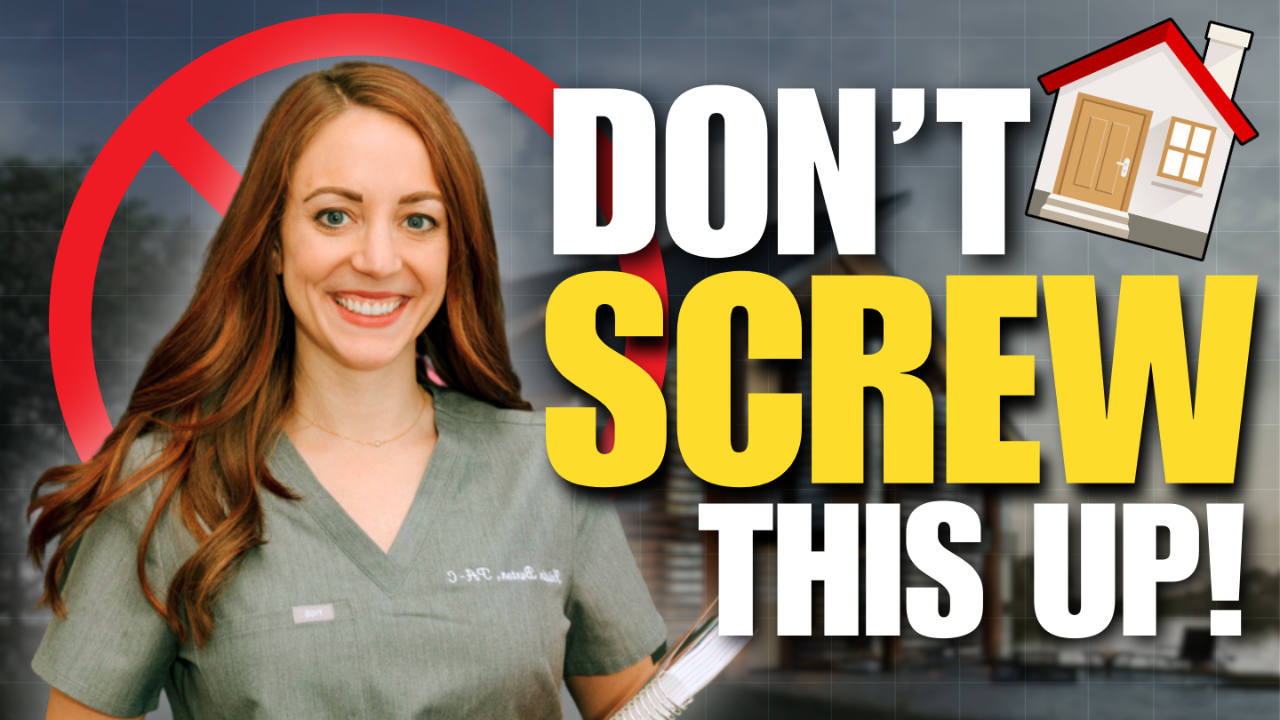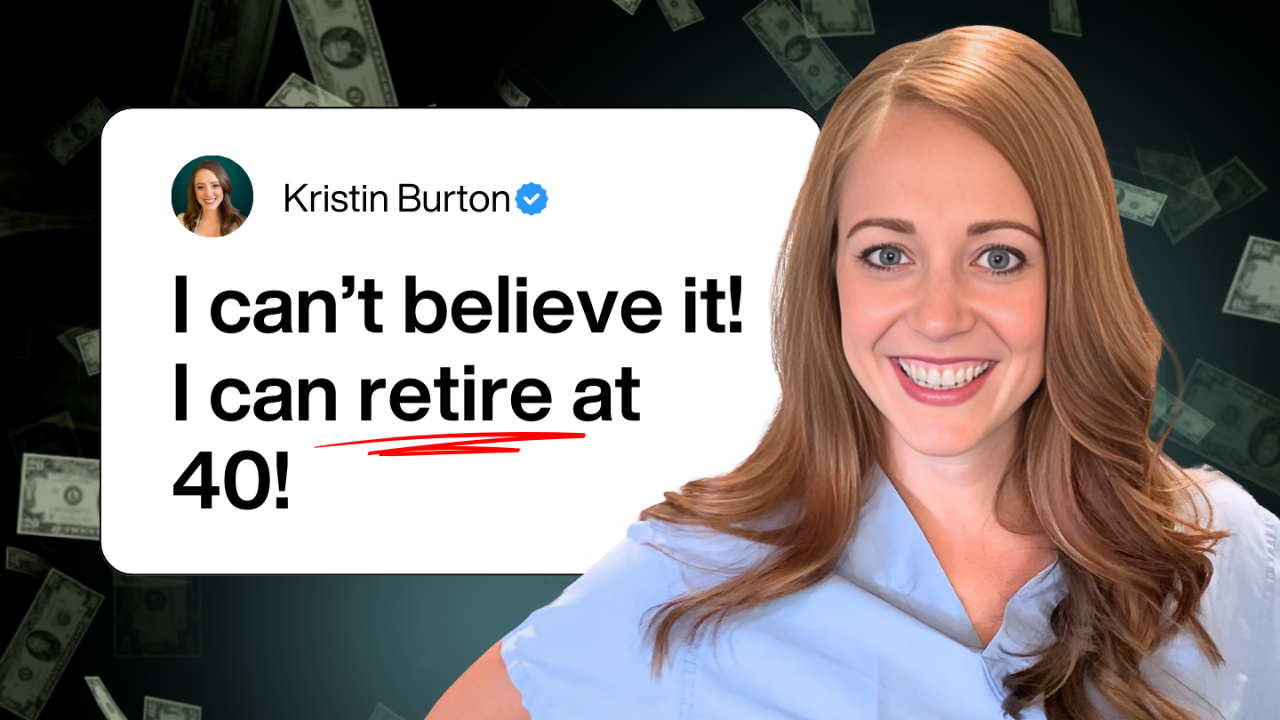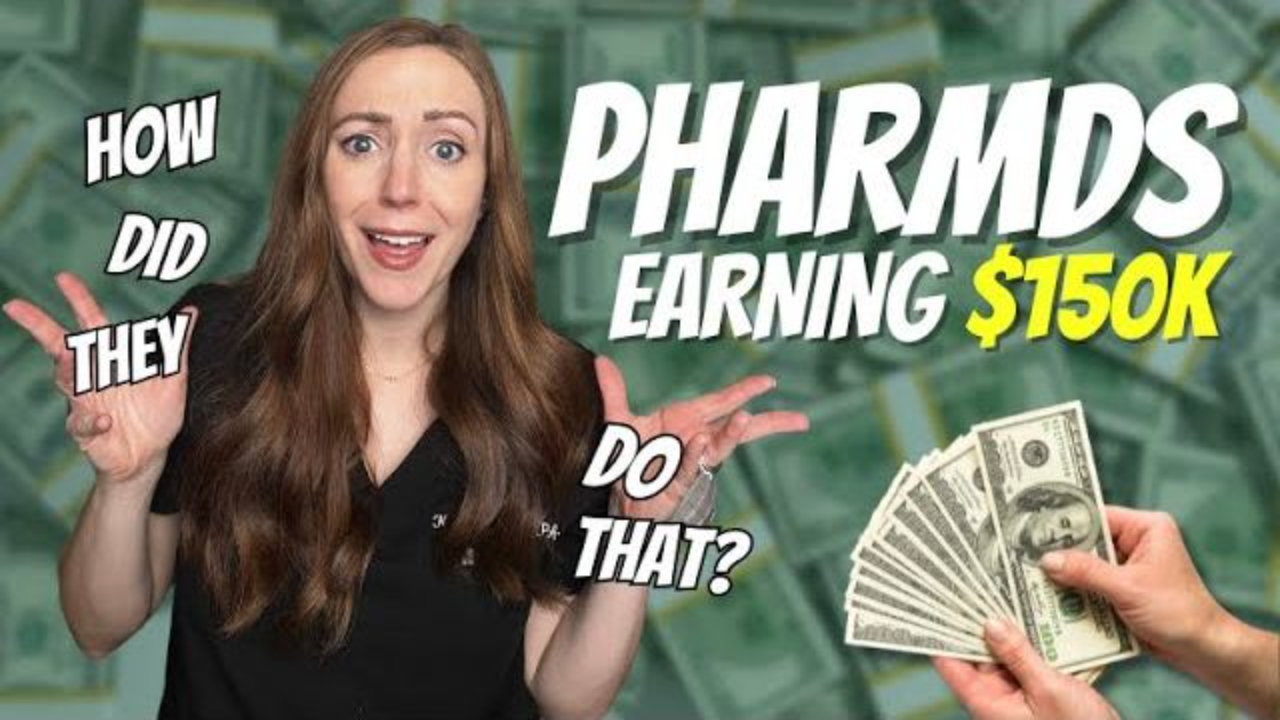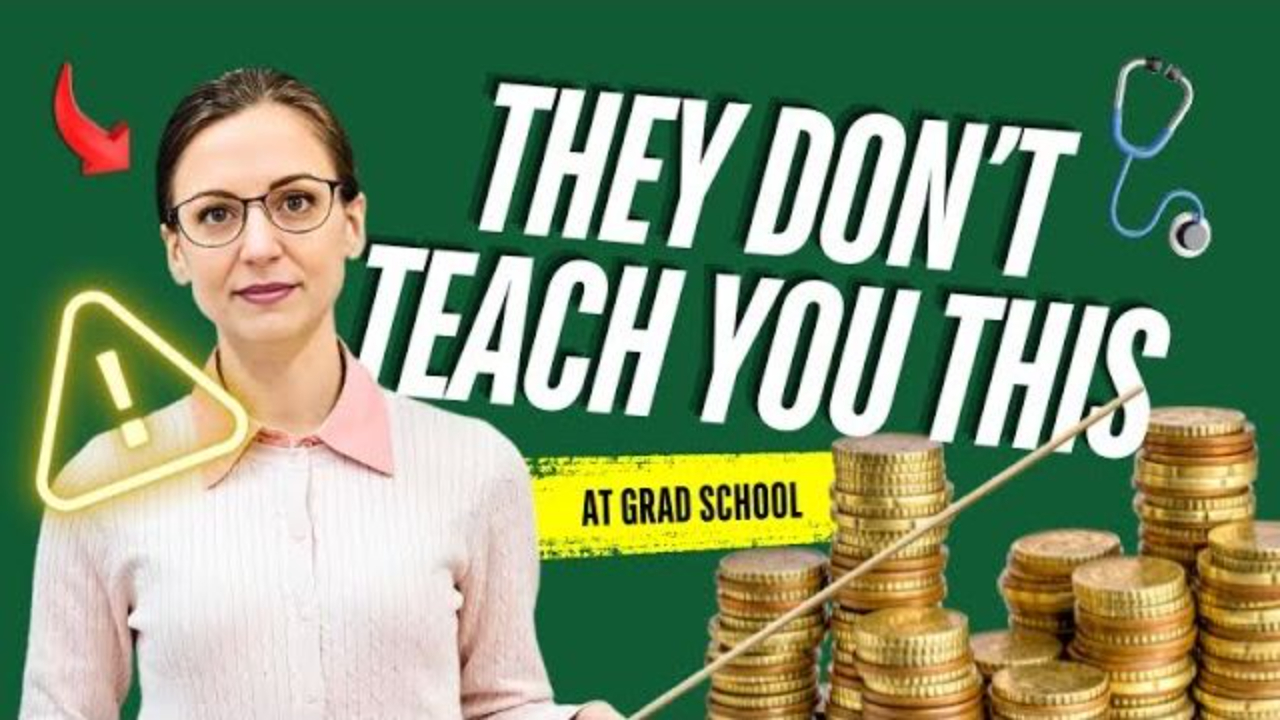Binge read all things wealth building, debt reduction, & lifestyle.
How to Buy a House as a PA, NP, or Pharmacist Without Screwing Up Your Financial Future

The fastest way to wreck your finances as a medical professional?
Buying the wrong house.
I’ve seen it too many times—PAs, NPs, and PharmDs rushing into homeownership, only to end up house-poor, underinvested, and stuck in golden handcuffs for decades.
So if you’re dreaming of buying a home in the next 1, 2, or even 5 years, let’s walk through what really matters when it comes to buying a house without sabotaging your future freedom.
Step 1: Don’t Start With the House
Don’t start by asking what kind of house you want.
Start with: “What can I safely afford each month?”
This is one of the biggest money moves you’ll ever make—especially if you’re not planning to become a real estate investor. You’ve got to get this right.
Step 2: Calculate Your Max Monthly Housing Expense
Here’s the formula I use:
1️⃣ Take your gross annual household income (pre-tax)
2️⃣ Divide by 12 to get monthly income
3️⃣ Multiply by 0.2 (that’s 20%)
That number = your max monthly housing cost
✅ If you’re buying:...
How Much Do PAs and NPs Really Need to Retire? (It’s Way More Than $1M)

I recently asked a room full of medical professionals, “Who here wants to work full-time until they’re 65?” Crickets.
No one dreams of spending four decades buried in EMRs and shift work. Most of us want options—whether that’s retiring early, reducing hours, or just being able to walk away if burnout hits hard. I find very few medical professionals don’t have a desire to never do medicine again - they just want control.
But here’s the truth no one tells you:
To have that freedom, you’re going to need a lot more money than you think.
Let’s break down what financial independence really takes—and how to actually hit that number.
What Financial Independence Actually Means
Financial independence means your assets pay for your life—forever. You’re not relying on your job, you’re not dependent on anyone else, and you get to decide how you spend your time.
You can build that a few different ways:
- Real estate portfolios that cash flow
- Ownership in operating businesses that send you pas...
How to Build Wealth When the Economy Feels Like a Dumpster Fire

Spring 2025 came in hot with tariff wars, rising inflation, student loan chaos, and stock market volatility that has a lot of medical professionals wondering...
“Is it even possible to build wealth in a season like this?”
Short answer: yes.
But you need a strategy—and some serious emotional discipline.
Why Personal Economics > Macroeconomics
The truth? You could come out of this economic mess ahead—if you have your personal financial systems dialed in.
✅ No high-interest debt
✅ 3–6 months of cash reserves
✅ Multiple income streams
✅ A student loan plan
✅ A long-term investing system
If you don’t have these in place, this season can wreck you.
If you do? You can use it to build wealth while everyone else panics.
What Investing in a “Down Market” Actually Feels Like
Whether you’re:
- A new investor putting in your first $1,000
- Or a seasoned one watching $70K disappear from your account in a day
It still stings.
But this is where people either panic and pull out...
Or keep go...
1 August 2025 - The #1 Tax Hack PAs to PAs, NPs, and PharmDs Are Using in 2025

If you're a PA, NP, or PharmD and you're looking for real tax savings—not just a couple of bucks from writing off scrubs or CME—this blog is for you.
Because in 2025, there are two powerful strategies that are helping medical professionals save $10K… $30K… even $50K+ on taxes. And they don’t involve changing your job, lowering your income, or sacrificing your lifestyle. They DO require investing in real estate, which means you need to be financially ready to do so. In my mind, this means:
- Free of all high interest debt (debt above 10% interest rate)
- 3-month emergency fund in place (separate from property down payment)
When you’re ready, these are real wealth-building tools that I use myself. Let’s break them down.
Why Most Real Estate “Losses” Don’t Help High-Income Earners
Here’s the kicker: when you own an investment property, the IRS lets you deduct things like depreciation and expenses. This often creates a paper loss on your tax return—even if your rental made money.
B...
How Following Common Money Advice Can Cost Medical Professionals Millions
Many PAs & NPs, especially those with significant student loan debt, follow the common financial advice to pay off all student loan debt as quickly as possible post-graduation. Some medical professionals feel shame surrounding their debt burdens, and desire to clear this balance as quickly as possible. Others are interested in the increased monthly cashflow they would have available without a student loan payment. Despite these benefits, there is significant cost associated this approach. In this article I will walk you through the math of following this common advice as a PA-C or NP, and why it might not be the best choice for you.
So... Debt Strategy: What Works and What Doesn’t
There are two commonly discussed methods utilized to clearing debt of any type. The first is the “debt snowball” strategy, which entails paying off all debt in order of current balance starting with the smallest balance. The benefit of this strategy is the psychological boost generated as you clear each...
What Most New Grad PAs Realize After Their First Paycheck

You graduate. You pass your boards. You land the job.
That six-figure paycheck hits—and then... reality sets in.
If you’re a brand new PA, you know exactly what I’m talking about.
It’s not quite the dream you imagined. Expenses feel overwhelming. Loans are looming. And you’re wondering, “Wait… where did my paycheck go?”
Let’s walk through exactly what you should be doing in your first year of practice to get your money right.
Why Generic Budget Rules Don’t Work for PAs
You’ve probably heard of those 50/30/20 budgeting rules:
- 50% to needs
- 30% to wants
- 20% to savings/investing
I hate those.
They’re made for the masses—not for people like us.
If I followed that rule? I wouldn’t be a millionaire by 31. I needed a lot more than 20% going toward debt and wealth-building.
What you really need is a cash flow system that helps you grow your net worth—not just track your spending.
Inside the Millionaires in Medicine Club, I break down exactly how to do this with a free tracker you c...
How I’m Making My Kids Millionaires... Without Spoiling Them

Yep, you read that right. It's totally possible to turn your kid into a future millionaire—without needing to throw in hundreds of thousands.
I’m doing it with just a few thousand dollars and a lot of intention. And in this blog, I’ll show you exactly how:
👉 The accounts we use
👉 The money system we teach our 3-year-old
👉 And the mindset shifts that actually matter more than the money
Let’s break it all down.
Our Four-Bucket Money System for Kids
You’ve probably heard of the classic give-save-spend system for teaching kids about money.
I hate it.
Why? Because it completely ignores investing—arguably the most important pillar of long-term wealth.
So instead, we created our own version: Give, Save, Spend, and Invest.
Every Sunday, our 3-year-old gets her allowance in quarters (supervised, of course), and she gets to divide those coins between her four jars.
To make the “invest” jar feel real, we created a visual thermometer tracker for her investing goals, broken into:
- 🎓 Coll...
Why Every Pharmacist Needs a Student Loan + Investing Strategy (Not Just One)

If you’re a pharmacist and you’ve been told to “just pay off your student loans first,” we need to talk.
Because if you’re like most of the PharmDs I work with (drowning in six figures of debt and feeling like you’ll never catch up) you’ve probably been sold the wrong plan.
I’m not here to tell you debt doesn’t matter. But I am here to tell you: debt payoff alone won’t make you wealthy.
You Need More Than a Student Loan Plan
Here’s the deal. Most people approach student loans and investing separately. But the smartest pharmacists I know have one cohesive strategy that does both and builds net worth 10x faster.
You can’t just think about what’s cheapest this month. You need to think long-term: What will your plan cost you over decades?
Let me show you what I mean.
PSLF vs. Taxable Loan Forgiveness (Why It Matters So Much)
If you're a clinical pharmacist working in a nonprofit or academic setting, chances are you qualify for Public Service Loan Forgiveness (PSLF). And if you're i...
How PAs, NPs, and Pharmacists Are Building Millions (Even Without High Salaries)

If you’re a PA, NP, or pharmacist and think wealth building is only for people in higher-paying specialties or dual-income households with no debt—this blog is for you.
The truth? It’s 100% possible to become a multi-millionaire with a six-figure income, even if you’re working in primary care, living in a high cost-of-living area, or just starting out. How do we know? Because we’ve helped medical professionals just like you do exactly that.
Below are five real client case studies to show you what’s possible with the right systems, strategy, and support.
CASE 1: Kelly, a Primary Care PA, Married to an RN
Challenge: Lower-paying specialty + early 30s with limited investments
Goals: Reduce hours when they start a family, retire early with flexibility
What We Did:
- Optimized their PSLF strategy to save $600/month on student loan payments
- Reallocated that money into an investing system
- Completely overhauled their account structure and monthly contributions
Result:
Kelly and her sp...
Why I Stopped Paying for Someone To Manage My Investments, and Saved Over $1.5 Million

If you're a PA, NP, or pharmacist and you've ever thought, "Personal finance is just too complicated for me," you're not alone. That’s exactly what most of us are conditioned to believe.
But here's the truth: learning to manage your own money could save you more than $1.5 million in your lifetime. I know this because I’ve lived it.
My Story: From Student Debt to Seven Figures
When I graduated as a critical care PA, I had $161,000 in student loans and zero assets. Like many new grads, I was eager to "do the right thing", so I hired a financial advisor and opened a Roth IRA through Edward Jones.
It felt like I was checking all the right boxes. But years later, I realized I had paid thousands in fees without even realizing it: fees that were quietly dragging down my returns.
Once I learned to manage my portfolio myself, everything changed. Less than a decade later, I hit $1 million in net worth at age 31.
The Cost of Not Learning Personal Finance
Most medical professionals fall int...



